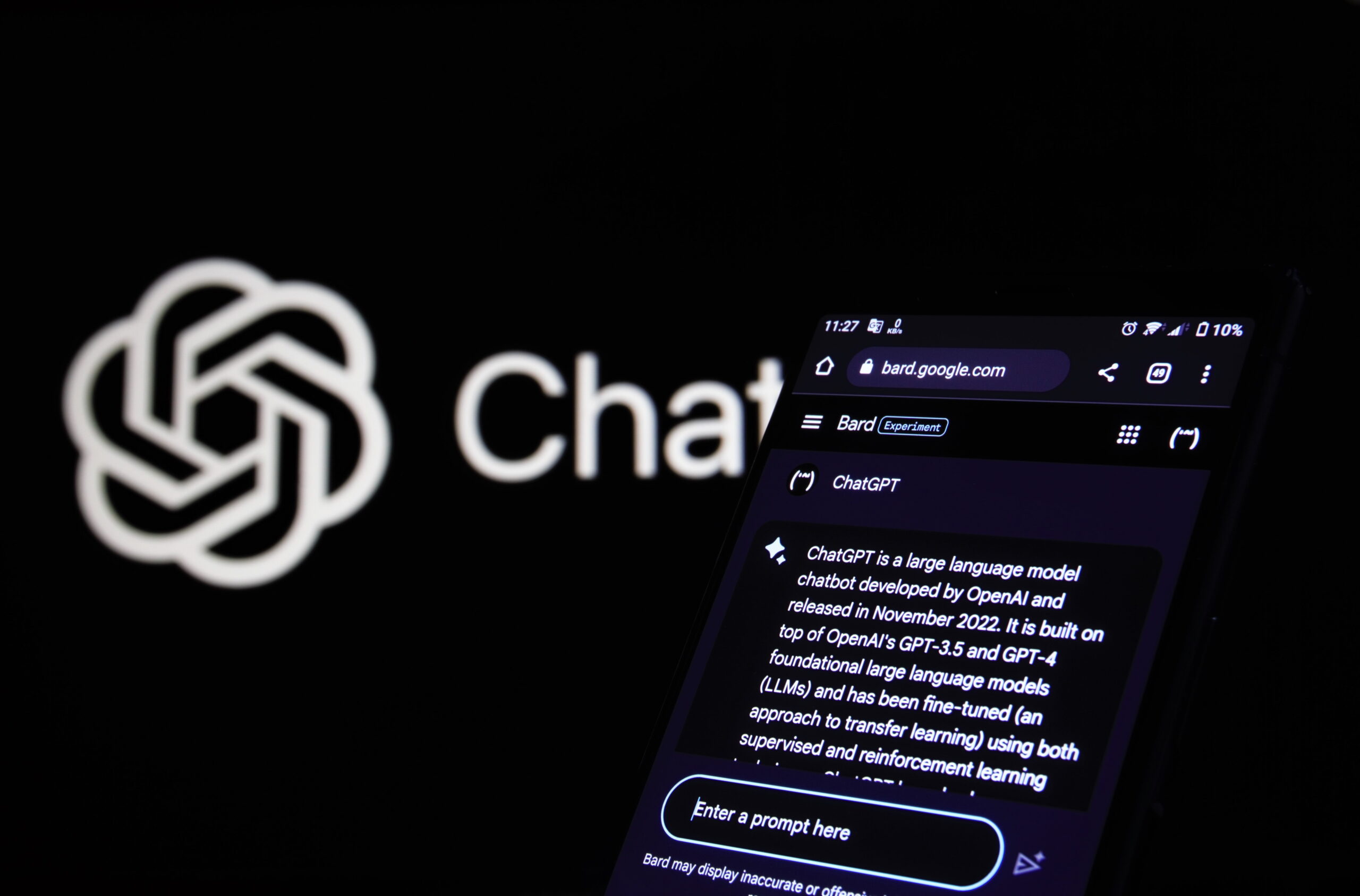AI is transforming the marketing industry. The explosive growth of generative AI (gen AI) tools has been attributed to the launch of ChatGPT in November 2022. However, AI tools have been widely used in marketing and sales since the 1980s, when machine learning became popular. If used wisely, it can be a helpful tool to utilise within your marketing strategy. A survey in June 2023 highlighted that 63% of brand marketers in the UK said they had experimented with ChatGPT or Generative AI as a part of their marketing and customer experience efforts.

Using AI in Marketing
Marketers are using AI to craft messages and copy for display ads, content ideas for blog posts, data collection and to improve the customer experience. In practice, what does this look like? Netflix, Amazon and Spotify have used AI tools for years to shape a better customer experience and increase brand loyalty. They achieve this with subsequent purchase recommendations and personalised messages.
When planning AI in your marketing mix, we refer to the RACE framework and focus on the Reach and Covert stages of the framework. The RACE framework (reach, act, convert, engage) was first formed in 2010 by Dave Chaffey to highlight the critical stages of the marketing funnel that businesses must focus on to improve their digital marketing results to position customers at the centre of their digital marketing activities.
How can AI be used during the ‘Reach’ stage?
This stage involves increasing website visits and building awareness of your brand through different paid, owned and earned media touchpoints. Your business needs to reach customers to encourage a purchase. Therefore, the two main uses of AI in this stage are AI-generated content and Voice Search Optimisation.
AI-Generated Content
AI-generated content can be a cost-effective way of producing content to help reach your customers. Content such as social post plans and articles can be produced quickly, potentially reducing costs and saving your business time. AI can also help your team with devising ideas for your Reach campaign. However, there is a risk of plagiarism as other competitors may also be using AI to support their own campaigns. AI also needs emotional intelligence to create content customers can relate to and engage with. It is essential not to use AI-generated content word for word but instead allow the tool to support your ideation and refinement stages.

Voice Search
Voice Search is becoming more popular with online searching due to smart devices such as Amazon’s Alexa, Google Home or Apple’s Siri function. This increase in voice search has changed how keywords and key phrases are used on your website. Customers who use voice search are more likely to ask a question or a longer term to get a more specific result when searching. This is known as longtail search, they tend to be longer and more specific, so adapting your keywords and phrases is crucial. For example, customers who include clothing size or location in a voice search may ask for ‘Ladiessize 14, petite leg, mum jeans in dark denim.’
To read more about Voice Search Optimisation, see our previous article.
The ‘Convert’ Stage
The Convert Stage follows the Act Stage, where a customer interacts with your business. This stage is the conversion to sale and involves encouraging your audience to purchase. ChatBots are a great way of assisting with this stage.
ChatBots
ChatBots are a form of AI that can help website users in all stages, especially in the Convert Stage. ChatBots are usually located in the bottom corner of a webpage to assist users with queries or aid in navigating the site. Introducing a ChatBot function on your website to assist with purchasing makes users more likely to power through minor difficulties if they feel supported. Ultimately resulting in a sale/conversion. Tidio, a third-party customer service platform delivering live chat functionality, reported that 87% of customers say ChatBots effectively resolved an issue. However, be mindful that ChatBots have limited functionality and can only offer help or advice within the information they are programmed with. This limitation will make unique cases harder to resolve and may negatively affect customer satisfaction ratings.
What is the future of AI in Marketing?
AI-generated website and marketing content has increased to support SEO objectives, developing content for social media ads or posts and content for email (producing professional responses and creating appropriate subject lines). More and more businesses are beginning to use AI to support their regular practices, and well-known companies are using AI in their marketing activity, including Maybelline and Microsoft, with the recent collaboration on AI-powered virtual makeup for Teams meetings.
As with any marketing tool, your company must have a policy in place to ensure AI is used appropriately and effectively within your business. Nearly two-thirds of UK businesses (Chaffey, 2023) use AI within their daily practices, but many still need a policy to use it effectively.
While the benefits can be huge for business opportunities and improvements to the customer experience, it’s important to keep in mind the limitations of AI. Remember that it is a resource tool to be incorporated into your existing marketing processes rather than instead of or replace key parts of your marketing strategy. While in silo, AI lacks the human connection and emotion required in marketing to connect to target audiences, it is a great way to help inspire your team and gather ideas for your content and projects.
If your business wants to introduce AI to its marketing strategy, contact our team by emailing customerservice@mackmangroup.co.uk or calling 01787 388038.
